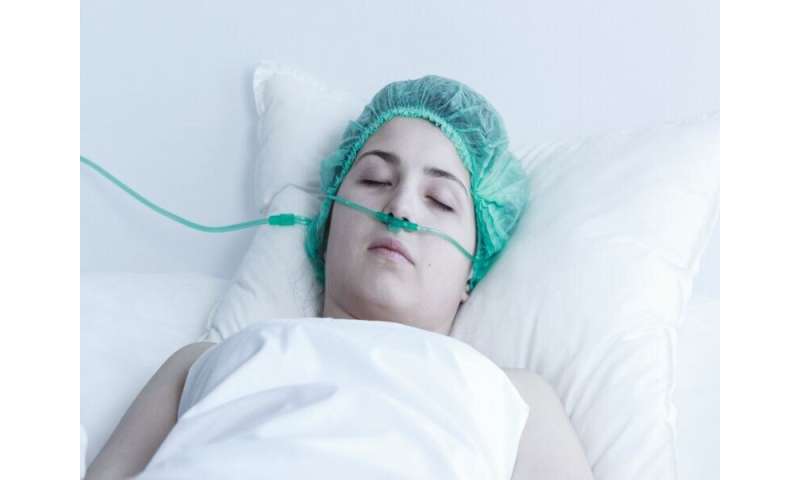Repeal of Obamacare could leave young cancer patients in the lurch

(HealthDay)—If Obamacare, or the Affordable Care Act (ACA), is repealed, pediatric cancer patients could lose critical insurance coverage, a new study warns.
Kids with cancer often require intensive treatment and long-term follow-up to beat the disease. The ACA allows them to stay on their parents’ insurance coverage to age 26 and bans exclusion of patients with preexisting conditions.
The U.S. Supreme Court is poised to rule on the future of the ACA this fall. Researchers at the University of California, San Francisco’s Benioff Children’s Hospital and the Children’s Hospital of Philadelphia studied the potential impact of dismantling it on 18- to 25-year-old cancer patients.
“We know that even brief disruptions in insurance have been associated with harmful health consequences,” said first author Dr. Lena Winestone, of the Helen Diller Family Comprehensive Cancer Center at UCSF. “Strict adherence to chemotherapy regimens, for example, is essential for those patients with acute lymphoblastic leukemia,” the most common pediatric cancer.
Researchers tracked patients born in 1982 or later who were diagnosed with cancer between 2000 and 2015. Most had leukemia, lymphoma or tumors of the brain or spine.
The investigators contrasted insurance status in four age groups, including a group who turned 19 within two years of the ACA’s adoption. They were matched by cancer type, diagnosis date, demographics and treatment characteristics to patients who were two years older and, therefore, unprotected by the ACA.
They did similar comparisons with patients who were 23 to 25 years of age and between 26 and 28 when the ACA went into effect.
The average time to end of coverage was 26 months, compared to 22 months for the older group—a 15% lower risk of insurance loss. The younger patients also were more likely to retain coverage for four years—37% versus 31%.
Winestone was senior author on a 2019 study that showed private insurance coverage may boost survival in pediatric cancer patients. In that study, 71% of patients with private insurance were alive five years after being diagnosed with bone and soft-tissue sarcomas, compared to 61% of patients with public insurance.
“Cancer survivors experience ongoing loss of income and financial burden related to their medical issues,” Winestone said in a UCSF news release. “At a time when unemployment is rising to unprecedented levels, due to the economic fallout of the pandemic, the Affordable Care Act provides a mechanism for patients to maintain access to their parents’ health insurance.”
Source: Read Full Article
